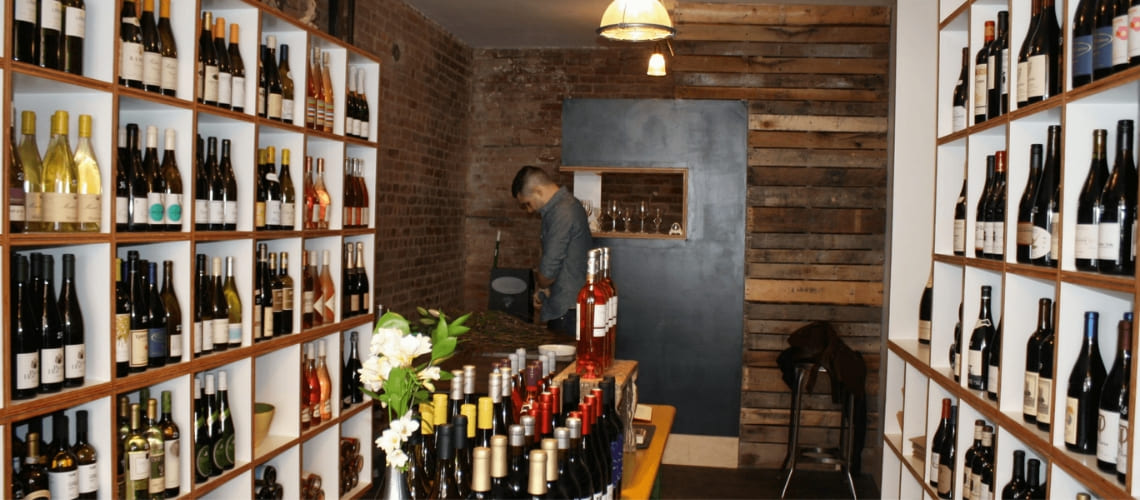One of the biggest challenges that small and medium-sized importers and distributors have is retaining their sales reps.
Today’s job market for the wine trade is bustling. With plenty of competition, there are plenty of new positions and sales reps to fill them. Sales reps work in a territory that may be in a competitive major market, in one of the country’s perpetually sprawling suburbs, or in a secondary market whose reputation is on the rise. If the rep’s company does not give the rep proper tools to compete, or does business in a manner that’s stuck in the old ways, or is inefficient in automating key processes, it can have a negative impact on the rep.
Sales have enough challenges, reps don’t want to also fight against the way their company does business just to make a sale. After two to three years of hard work for a small or medium-sized importer or distributor, some sales reps look for better opportunities with the potential for strong monthly sales. Sales reps want long-term potential and a solid career path.
Here are some factors that contribute to helping sales reps decide to move on.
1. Collecting Checks and Not Being Focused
Some importers and distributors ask sales reps to collect checks. It’s not the best practice to make a sales rep responsible for collecting checks. As with professional services, it’s better to keep a clear separation between seller/provider and collector. This protects the sales rep from being perceived as “the bad guy” and encourages customer accounts to form a relationship with a number of people at the importer or distributor, not just one. A rep retrieving a check should always try to leverage a commitment for a meeting in return for the favor, but often this isn’t possible. Collecting checks are precious time spent on activity that is not sales related. Good sales reps can’t afford to waste time, their most valuable resource. By definition, each workday is non-renewable, a one-time opportunity. Any good company knows this. Effective sales reps must focus on developing and implementing a strategic plan to establish as many strong growth-potential accounts as possible. All activity outside this parameter should be seen as unnecessary.
2. It’s Faster and More Efficient on the Web
Smart, aggressive and younger-thinking importers and distributors are taking advantage of the innovative thinking behind services now available on the Internet to claim a larger market share. Sevenfifty.com has a range of tools that make sales reps life much easier. Using this vendor, reps can make up tasting sheets for sales meetings, keep records of which products they’ve tasted at which accounts, and send links to sell sheets on producers and specific wines. Some importers and distributors still producing static printed materials continue to struggle. Web vendors like Paypal can handle invoice payment quickly and efficiently. It’s unnecessary to mail a check and wait longer for arrival. Similarly, a wire transfer, ACH transfer, or direct deposit into an importer/distributor checking account can quickly pay a past due invoice. Companies that continue to rely on “snail mail” put sales reps at a disadvantage because the rep must wait until payment is received and processed to sell to the account with the past due invoice.
3. Account Run Filled With Problem Accounts
Problem accounts and accounts with low growth are often slow payers. Getting new placements, or getting a meeting, at these accounts always seems to be a huge task. In place of orders, these accounts give excuses why they “can’t add any new SKUs right now” or “can’t book any more meetings this month.” These accounts may have longstanding, healthy relationships with competitors and the sales rep’s company may be perceived as the lesser “new kid on the block.” If the sales rep has made an honest effort over time to sell to the account and it hasn’t gone anywhere, this is a problem for the rep. An account run chock full of these accounts will make monthly sales drag. The rep spins their wheels for a long time to generate a few small orders. It will be difficult for the rep to build momentum with consistent sales over the month because they’re constantly re-building weak or broken relationships. It’s more difficult for a rep to give old accounts they’ve inherited the same passion as new accounts they’ve found themselves, but the account deserves it. Over time, if the account shows little interest in building a healthy relationship, it is demoralizing for the rep, who must re-fresh their account run with new prospects. This requires an enormous investment of time and effort over the long term.
4. A Range of Value Wines
This is one of the most serious factors that limit a sales rep’s success. Regardless of the type of market that restaurant and retail accounts are in, customer accounts are looking for volumetric, value wines with strong QPR (quality price ratio). In today’s wine markets across the U.S., these are the best, most effective weapons in a sales rep’s arsenal. It doesn’t matter if it’s Pinot Grigio from Friuli, Chardonnay from California, or Malbec from Argentina. For restaurant and retail, these wines are in the “sweet spot” price range that will allow an account a decent markup wherein the consumer won’t flinch. Value wines are the “bread and butter” of a sales rep’s monthly billing. These wines outsell “mid-tier” and “high end” wines by a great margin. Importers and distributors that don’t offer a range of excellent quality value wines, or those that have only a couple of products in this category, are placing a serious limitation on the potential sales and success of their reps.
5. “Known Quantity” Products Within Hot Categories in the Market
Around eight years ago, Albariños from Spain began appearing on lists at restaurants where the food served was American, Japanese, French and other cuisines, not just Spanish. A few years before, Grüner Veltliners from Austria enjoyed a similar breakthrough. In the 1980s, Pouilly-Fuissé wines from the Mâconnais subregion in Burgundy fetched high prices in Manhattan restaurants, including many known for northern Italian menus. Malbecs from Argentina continue to have a strong brand identity. Importers and distributors that don’t offer any of these are denying an easy “lay up” from their sales reps, one that can kick-start an account’s sales. Accounts often request hot category products, making them much easier to sell. When an account asks for a Prosecco, a Pinot Noir or a single malt Scotch, the sale has already been successful. What remains is mere to take the order. Without any hot category products to offer, a sales rep’s job is much more difficult. In effect, they must build a brand before they can sell it.




